Benefits in kind, or BIKS, are a tax-deductible expense and reduce the profits on which tax is paid. If you don’t yet offer BIKS to your staff, it’s a good idea to become acquainted with them. The full list of tax-free benefits can be found on HMRC’s website but examples include:
- Pension contributions (i.e. higher than the minimum government requirement).
- iPads and laptops provided primarily for work purposes.
- Meal and childcare vouchers
- Life assurance
- Cost of nurseries
- Entertainment – such as practice awaydays or meals out
- Bicycles and cycle safety equipment
- Mobile phones
- Long-service awards
- The cost of travel if the employee stays late
- Courses and retraining costs
- Welfare counselling
- Subscriptions to professional bodies
- Trivial benefits under £50 each (excluding cash or equivalents)
- Uniforms for staff
- Charging costs of electric cars
As you can see, there are plenty of options. The advantage for employees is that they don’t need to pay for these items out of their own taxed income. Life assurance cover is a good example of an important non-taxable benefit, since it provides your staff with financial protection. The benefit from the policy can be put into a trust and the employee’s family and dependents are made the beneficiaries.
Some BIKS are taxable. Falling into this category, the most common are:
- Medical insurance
- Company cars and fuel.
- Staff entertainment above £150 per head per annum.
- Home phones / broadband paid by the business.
- Non business travel expenses (courses combined with holidays!)
- Personal bills of the owner paid by an incorporated business.
- Benefits provided to your staff by your associates (we have seen generous former principals providing bonuses to ex-employees).
- Christmas bonuses
Cars are a grey area since if they are available for personal use they are a taxable benefit but if they are only used for work, for instance when travelling to other practices in the group or making a domiciliary visit, they are a tax-free benefit.
Electric company cars currently offer excellent tax advantages for incorporated practice owners with low BIKS – many practice owners have taken advantage of this. Unfortunately, this does not work as well for those in self-employment or partnerships.
It’s important to be aware of which benefits are taxable since there can be consequences for not declaring them. You want to avoid any pitfalls and ensure that any tax reduction measures work efficiently for you and your staff.
Christmas bonuses are a good example. If you give your employees a cash bonus, this counts as earnings on which tax and NI should be paid. A present, unless it’s considered trivial, should be reported on the P11D form.
The responsibility for declaring BIKS lies with the employer who must fill in the P11D and submit it to HMRC. The submission deadline is 6 July following the tax year in which the employee received the benefit.
You should also provide a copy of the form to the employee so that they can check your calculations and ensure that they pay the correct amount of any income tax or NIC, which are deducted through your payroll system. You must also complete an additional form P11D(b), which relates to the benefit-related NIC you owe. You submit this form at the same time as form P11D.











